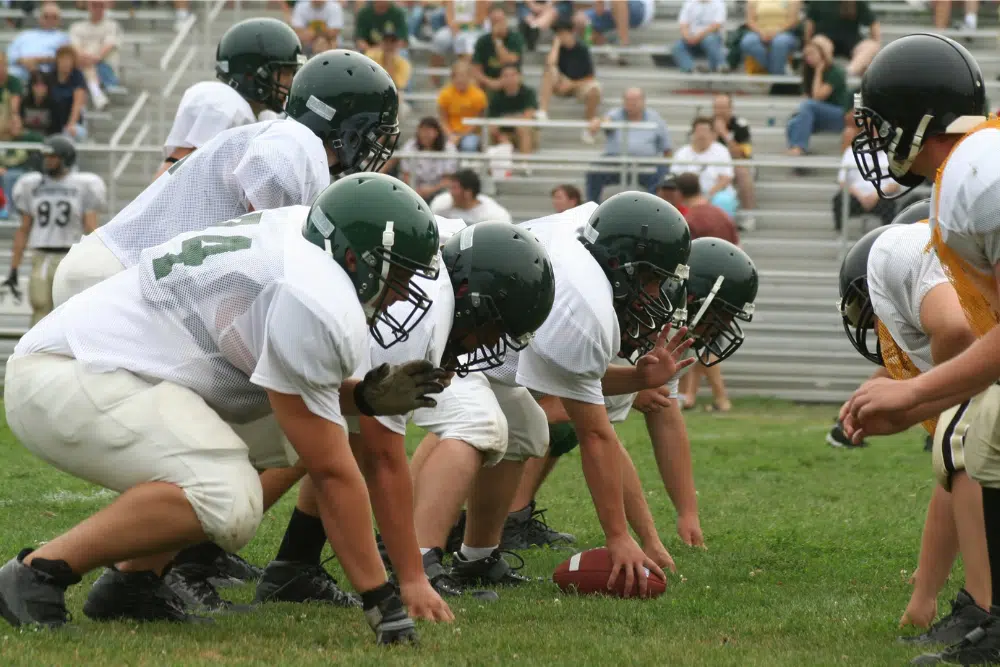Athletes expect that their athletic trainers will be able to assess their injuries and look out for their best interests. In fact, under Illinois law, when a person takes a job in which they are responsible for providing a service to another person, and they fail to use reasonable care in carrying out that service, and as a result an injury occurs, that is enough to potentially hold the person liable in an Illinois personal injury lawsuit.
As per a recent report by MSNBC, that’s exactly what happened earlier this month when a public school district agreed to pay a $4.4 million settlement to a former high school athlete who suffered a head injury playing high school football, and now must communicate through a keyboard. The facts in the case alleged that the boy sustained a concussion in an earlier game, but athletic trainers responsible for his care allowed him to participate with the concussion in a later game that caused his permanent injury.
At the time he was hurt, the young man was a high school senior and a linebacker on his school’s football team. He took a prior hit to the head, and, as per MSNBC‘s report, the team’s head coach ignored signs that he was in distress. According to deposition transcripts from the case, an assistant athletic trainer for the school reported that symptoms of a concussion were ignored; in the deposition, the assistant trainer said that, a week before the injury, the young man complained to the team’s athletic trainer about having headaches, which caused him to miss certain parts of practice, and that, just a few minutes before the game, the boy asked if he could sit out the first quarter because his head was hurting, but the coach refused to take him out of the game, reported MSNBC.
After playing in the first half of the game, the high school senior collapsed on the sidelines, and was rushed to a local hospital where doctors had to remove part of his skull to alleviate the pressure from internal bleeding. Nevertheless, the bleeding inside his brain caused extensive, irreversible damage.
This particular settlement is just one example of a growing trend of lawsuits that have been brought against the football organizations – in particular, the National Football League – by former players, who allege that they continue to struggle with long-lasting effects of concussions sustained during professional football games. Said MSNBC, earlier this year, more than 20 concussion-related lawsuits brought against the NFL by former players were consolidated in a federal court case.
In situations like the young man’s, it is the responsibility of the athletic trainer to assess athletes’ injuries and decide whether or not they are fit to play. In taking the job as an athletic trainer, an individual holds him- or herself out to be qualified in athletic training. By ignoring the boy’s signs of distress, the trainers in this case breached the duty of care they owed to him.
When a person is determined to be legally responsible for injuring someone else, an Illinois personal injury lawsuit may arise, and the responsible person may be made to pay the injured party compensatory damages. Compensatory damages attempt to put an injured person back in the position he or she was in before being injured. In some cases, punitive damages are also awarded in these lawsuits. Punitive damages are intended to punish wrongdoers and discourage them from harming others in the future.
Today, the former high school athlete is confined to a wheelchair and he cannot stand or speak, reports MSNBC. Because the school’s athletic trainers failed to use care in performing their job, they were held accountable for the injuries that the boy suffers and will continue to endure.
Injuries suffered as a result of another person’s negligence can be severe and life altering. If you or a loved one have been hurt because of another person’s failure of care, contact a personal injury attorney to understand your rights under the law. You may be entitled to compensation for your suffering.



